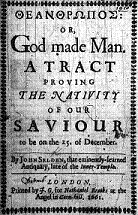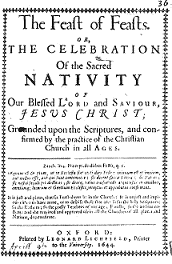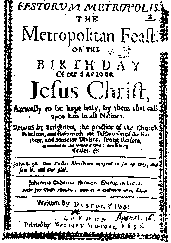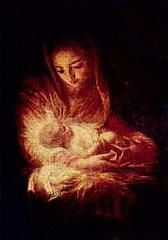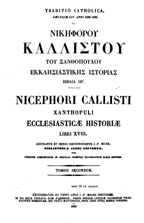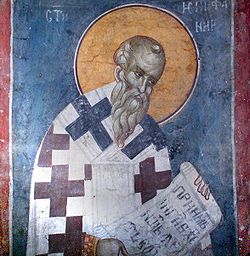The Ecclesiatical History
of
An illuminated codex manuscript produced for a wealthy Christian
named Valentinus for the year 354 (the Chronography of 354),
bears an inscription for December 25th designating
games in honor of the birthday of the Unconquered One. "N
INVICTI CM XXX". N = Natalis ("birthday/nativity").
INVICTI = "Of the Unconquered one". CM = Circenses missus
("games ordered"). XXX = 30. Thus, for birthday of the
"unconquered one" that year, thirty games were ordered. It is
widely believed that this is in reference to quadrennial games
instituted by the emperor Aurelius, who worshipped the
Unconquered Sun (Sol Invictus).
The same codex, in part 12, contains reference to the birth of
Christ in the first entry under a section devoted to annual
commemoration of the martyrs:
ITEM DEPOSITIO MARTIRVM
VIII kal. Ian. natus Christus in Betleem Iudeae
Eight days before the Kalends of January is Dec. 25th. It is
generally agreed that the Item Depositio Martirum originally
dates to A.D. 336, but was updated to A.D. 354 for inclusion in
the codex.
Some liturgical historians conclude that celebration of Christ’s
birth thus originated about A.D. 336 in the city of Rome as a
way of counter-acting Sol Invictus. However, there is no
evidence supporting this supposition other than the coincidence
that both events fell on the same day and both originated in
Rome. But the histories of Nicephorus refute this supposition
entirely. Nicephorus
reports 20,000 were martyred by Diocletian in A.D. 302 on
Christmas while celebrating the Nativity:
"At Nicomedia (a city of Bethenia) when the festival of Christ's
birth-day came, and a multitude of Christians in all ages had
assembled together in the temple to celebrate that birth-day.
Diocletian the tyrant, having gotten an advantageous occasion
whereby he might accomplish his madness and fury, sent men
thither to enclose the temple, and to set it on fire round
about, and so consumed them all to ashes, even twenty thousand
persons."
The history of Nicephorus is witnessed by the Roman
martyrologies and the Greek menologies Selden (Theanthropos, pp. 33, 34).
Greek Text |
Latin Text page 155 |
______________________________
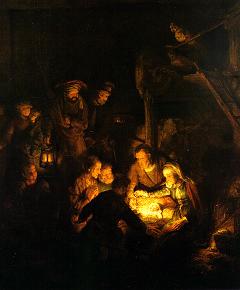
Adoration of the Shepherds
All rights reserved.
 John Seleden’s
John Seleden’s